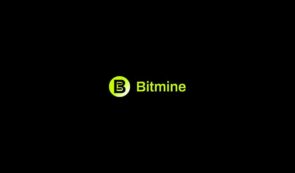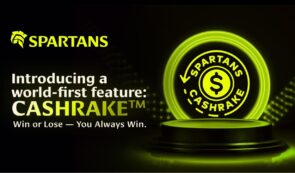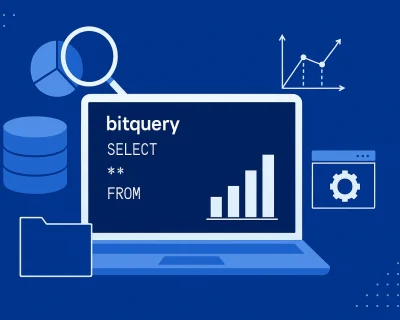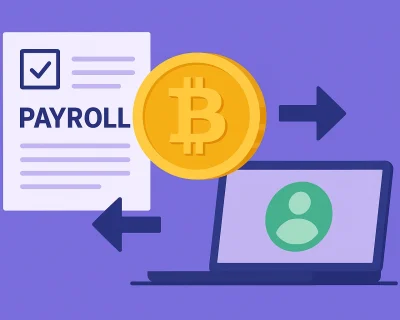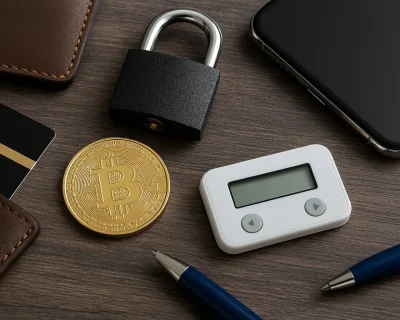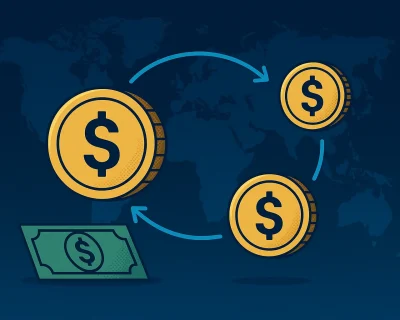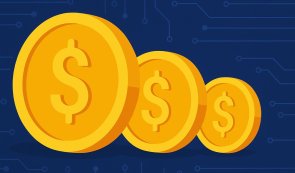Why Coinme CEO Neil Bergquist Says Consumers May Choose Bitcoin ATMs Over Traditional Banking Options
In the midst of inflation and eroding trust in traditional financial institutions, a growing cohort of consumers is gravitating toward an increasingly prevalent alternative: bitcoin ATMs. Initially dismissed as a fringe novelty, these kiosks are now ubiquitous at U.S. grocery stores and other accessible neighborhood locations. They could offer an entryway to the world of crypto for a public that tends to have only a cursory, if any, awareness of how blockchain technology really works and how it can potentially sidestep long-standing inefficiencies in traditional banking and payment systems.
At the forefront of the adoption of bitcoin ATMs is Coinme, a Seattle-based leading U.S. regulated crypto-exchange powering over 40,000 locations across the U.S. Since its inception in 2014, the company has steadily expanded its footprint, fueled by consumer demand drivers that its co-founder and CEO, Neil Bergquist, believes position bitcoin as an increasingly attractive substitute for conventional banking services.
“Your bank account balance is worth less over time when you hold an inflationary asset like fiat currency,” says Bergquist. “The banking system is literally not providing access to a better store of value.”
Indeed, as the purchasing power of the U.S. dollar has dwindled amid historic inflation rates over the past three years, bitcoin, with its capped supply of 21 million coins, has drawn investors seeking a hedge. This dynamic underscores what Bergquist views as a core advantage of the pioneering cryptocurrency: Its scarcity and decentralization mean that its value isn’t subject to the same inflationary pressures brought on by central banks or government policies.
Combating a ‘Wild West’ Perception
Bitcoin’s potential as an inflation hedge is just one dimension shaping consumers’ embrace of Coinme’s platform and the broader crypto ecosystem. For many, crypto offers a path to financial autonomy, unfettered by the whims of banking behemoths.
“There’s a segment of our customers who use cash because they believe cash is freedom,” says Bergquist. “They don’t want their bank account monitoring and controlling them in a ‘Big Brother’ type of way. They believe cash is freedom and they love bitcoin because they believe bitcoin, especially when self-custodied, shares similar values of independence and freedom.” While such sentiments may resonate with crypto’s antiestablishment roots, the sector’s lingering perception as a digital “Wild West” has also stifled mainstream adoption in the past.
Coinme, however, is taking deliberate steps to counter this narrative by adhering to the same rigorous compliance standards as traditional financial services providers, balancing this compliance with access to the decentralized, immutable transaction verification that’s the foundational upside of blockchain technology.
“Coinme is a licensed and regulated financial institution, just like the other financial institutions you know and trust,” says Bergquist. “We’ve implemented KYC [know your customer] and AML [anti-money laundering] controls, including blockchain monitoring. If you’re trying to send crypto to a wallet that’s deemed too risky, our systems won’t process the transaction. When regulated exchanges and wallets follow these protocols, it makes crypto safer and more likely to be adopted by the public and existing financial institutions.”
This regulatory diligence has earned Coinme the trust of marquee retail partners, including leading retail financial service providers like Coinstar and MoneyGram and some of the nation’s largest grocery chains. Crucially, it’s also enabled the company to make crypto tangibly accessible to the masses.
“We’ve solved the access problem,” says Bergquist. “There are more Coinme cash locations than the largest private bank ATM networks or branches. You can actually use cash and buy crypto at more locations in the U.S. than you can deposit cash to the largest private bank ATM networks.”
Democratizing Cross-Border Payments
The underlying blockchain technology behind bitcoin enables near-instantaneous, borderless transactions at a fraction of the cost of traditional money transfers, and this has catalyzed fervent grassroots adoption among a particularly underserved demographic: those navigating the complexities of cross-border remittances.
“We have a user persona who has friends or family who live outside of the United States, and they live a kind of a multicountry life,” says Bergquist. “They’re using us to send bitcoin or other crypto cross-border because, with crypto, it can often be done faster and cheaper than sending fiat.”
Traditional remittance channels like bank wires can incur fees as exorbitant as $35 per transaction, in addition to exchange rate markups. These frictions compound the economic vulnerability of those sustaining families across international borders. In contrast, cryptocurrencies derived from open, decentralized networks bypass these inefficiencies.
“Bitcoin is interoperable,” says Bergquist. “You could send it via Coinme and pick it up via Bitso or any other wallet or exchange because that’s the beauty of being on-chain: It creates a global interoperable financial network. The open nature of bitcoin and blockchain is what makes it so unique.”
These dynamics are particularly resonant in developing economies where fiat currencies are susceptible to hyperinflation and eroding remittances’ purchasing power before ever reaching their intended recipients.
Eliminating Hidden Fees
Beyond cross-border remittances, bitcoin’s attributes as a seamless medium of exchange have led to its use for domestic payments and e-commerce, particularly amid a broader reappraisal of the often exorbitant fees levied by financial gatekeepers.
“We have another customer persona that’s generally a younger individual who’s fairly crypto-savvy and uses crypto for payments,” says Bergquist. “They’re using it as payment for a merchant who offers incentives to pay with bitcoin because it cuts out Visa and MasterCard.”
The ability to bypass credit card networks’ processing fees — which can exceed 3% of each transaction’s value for merchants — empowers businesses to pass those savings directly to consumers, manifesting as discounts for crypto payments.
Bergquist notes that another compelling promise of bitcoin lies in its potential to upend the fee structures that underpin checking accounts and payment applications.
“There are no account fees with Coinme. There’s no opening account fee, balance minimums, overdraft fees, etc.,” he says. “The concept of those fees just doesn’t exist. If you want to transfer money from your U.S. bank account to an international bank account, it’s usually $30 or more. You could send crypto on-chain for pennies to nearly any wallet in the world.”
An Ecosystem Takes Shape
Despite skeptics’ doubts about cryptocurrency’s real-world utility, Coinme has already enabled its customers to begin reaping these benefits.
“We enable people to liquidate bitcoin for cash instantly to buy goods and services at more than 20,000 ATMs across the U.S.,” says Bergquist. “One of the misconceptions about crypto is this skepticism about, ‘What are you going to use your bitcoin for? You can’t buy anything with it.’ Well, now you can liquidate your bitcoin for cash and buy anything you want.”
As adoption accelerates and developers construct increasingly intuitive interfaces atop crypto’s architectures, a more sturdy crypto ecosystem is taking shape — one propelled by the very attributes that initially sparked bitcoin’s creation: decentralization, immutability, and autonomy from capture by monolithic intermediaries.
“Bitcoin truly is a digitally native form of ‘money’ that has solved the problem of trust in our digitally native world,” Bergquist proclaims.

